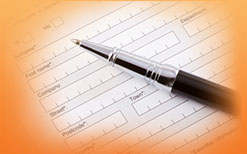pH Monitoring in New Jersey
Located in Lawrenceville, New Jersey, the Digestive Health & Nutrition Center, led by gastroenterologist Angela Merlo, M.D., performs pH monitoring for residents in and around Trenton and Princeton.
What is Esophageal pH Monitoring?
GERD, more commonly known as gastroesophageal reflux disease, can be monitored and evaluated by using esophageal pH monitoring. This test can also be utilized to determine if medicines being used to prevent acid reflux are effective. During this exam, the level of acid reflux, or backing up from the stomach to the esophagus or food pipe is measured.
There are many circumstances where esophageal pH monitoring is beneficial, especially when it comes to assessing GERD. Esophageal pH monitoring may be used for:
- Examining symptoms of GERD such as heartburn and regurgitation
- Determining if unusual symptoms such as chest pain, coughing or a sore throat are related to GERD
- Monitoring the effectiveness of medications used to control the disease
Wireless Capsule Esophageal pH Monitoring
Esophageal pH is monitored with Bravo pH monitoring. During this procedure, a capsule is adhered to the lining of the esophagus.
How Should I Prepare for the Test?
Patients must have an empty stomach in order to have an accurate and safe exam. Patients should avoid eating and drinking for at least eight hours before the test.
How is a Wireless pH Monitoring Test Performed?
This test is performed using a capsule that is more or less the size of a pencil eraser. This capsule contains a probe designed to detect acid, in addition to a transmitter and power source. It is placed into the esophagus via a catheter that is inserted either orally or through the nose. Once in position, the catheter is removed from the body, but the capsule remains in place.
Inside the esophagus, the catheter continues to collect information, which is then transmitted to a recorder on the patient’s belt. It will continue to monitor activity for up to 48 hours. This allows doctors to get a good picture of what is going on inside the patient’s body. The patient will also keep a record of when he or she eats, sleeps, or experiences certain symptoms by writing in a diary or pushing buttons on the recorder.
After 48 hours, the patient will return to the office. The recorder will then be connected to a computer so that the data it captured can be downloaded and analyzed.
Within a period of five or more days, the capsule will disconnect from the esophageal lining, and will eventually be passed in the stool. This capsule cannot be reused at a future date.
The benefits of using the capsule device include not having a catheter connected from the probe to the recorder and the ability to perform a longer study. Not having a catheter in the back of the throat is a lot more comfortable for patients. It is more likely that people will go about their daily activities when using the wireless pH monitoring system.
Can I Take my Current Medications?
In most cases, the answer is yes. We request you inform us about the medications you are taking before beginning the procedure. This would include things such as aspirin products, medicines for arthritis, anticoagulants, blood thinners, iron products, and insulin.
If you live in or around Trenton or Princeton, New Jersey and are looking for a specialist in adult and pediatric gastroenterology to perform pH monitoring for GERD, contact the Digestive Health & Nutrition Center in Lawrenceville today to set up an appointment.







